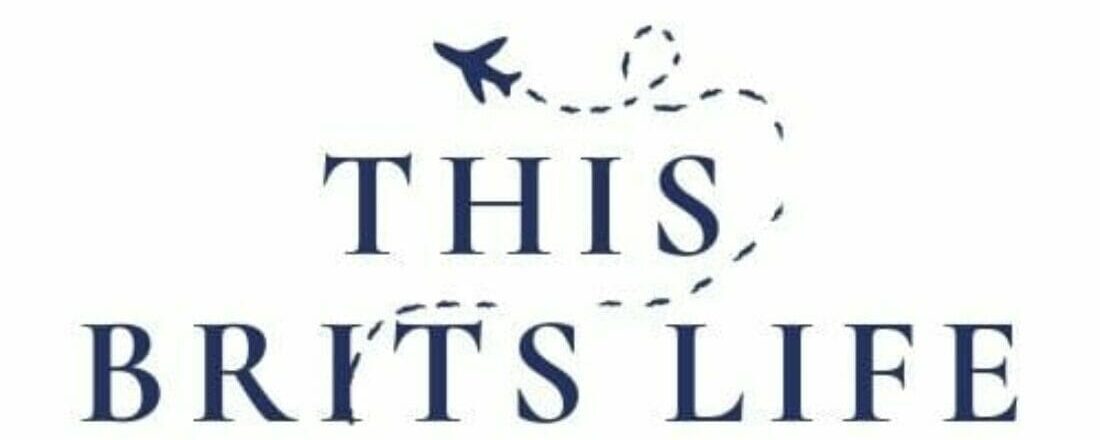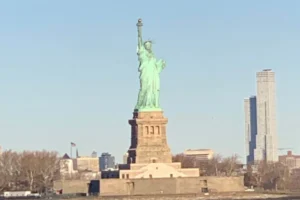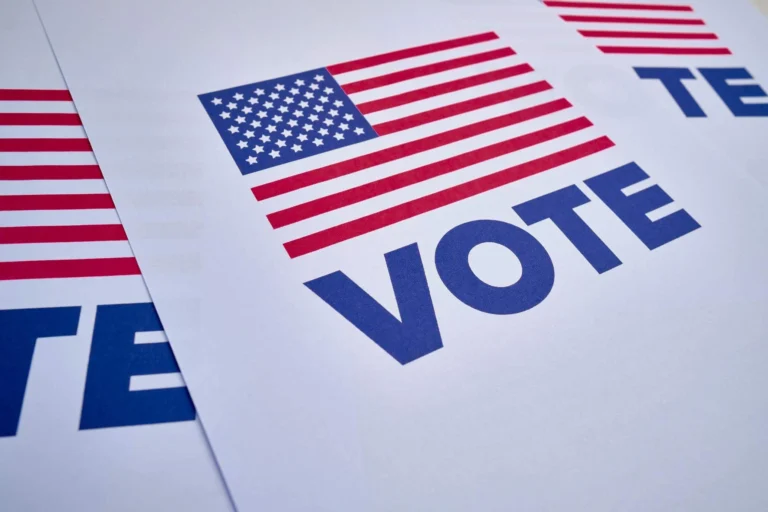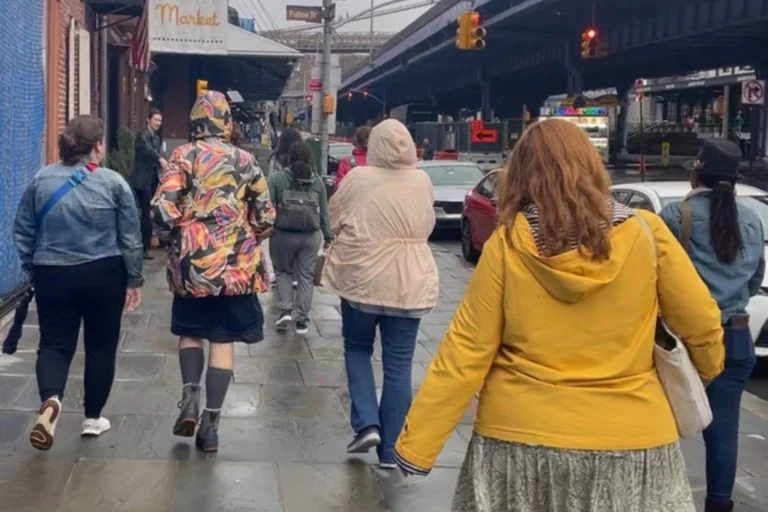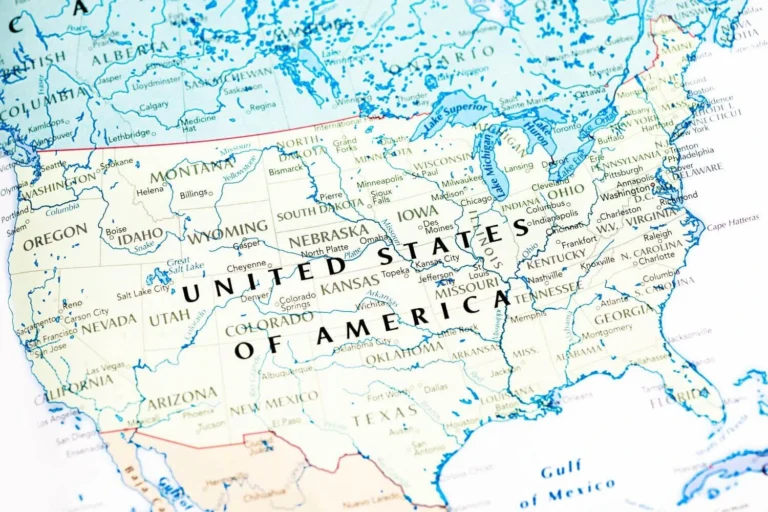Countering Banned Books In America: Essential Reads On Racism, Religion & Democracy
Across the books that people need the most are the ones being silenced. Banned books in America are on the rise, with school boards and politicians targeting titles that speak the truth about history, race, identity, and democracy. From classroom bans to political attacks on free thought, the story of America is being rewritten before our eyes. Book banning has never happened at this scale before in U.S. history — and it’s no accident.
Individuals who ban books are never on the right side of history, and their intention is always to censor, manipulate, and brainwash people. So these bans overwhelmingly target stories about race, racism, people of color, LGBTQ+ lives, women’s rights, and oppression.
By banning thousands of books, the alt-right is also attempting to erase entire chapters of American history and silence conversations about democracy, religion, and power. Why? Because knowledge is dangerous to authoritarian leaders. An educated public that understands its history — the good, the bad, and the ugly — is so much harder to lie to and manipulate.
That’s why one of the most powerful things you can do today is build your own library. Reading is resistance. Books are a form of protest. And passing these stories on to the next generation ensures that truth outlives censorship.
This reading list brings together essential books on U.S. history, politics, and religion—titles that challenge propaganda, uncover hidden truths, and help you make sense of the moment we’re living in. At the bottom of this post, I’ve also included some non-fiction and fiction books for younger readers.
Banned Books: An Attack On The Freedom To Read
Since 2021, PEN America has documented almost 23,000 book bans in schools nationwide. There have never been book bans of this scale before in the history of the United States. In the 2024 to 2025 school year alone, PEN America has recorded 6,870 book bans affecting almost 4000 unique titles.
This aggressive censorship, mobilized by far-right conservative extremists, has spread to almost every State now. Focusing on topics of race, racism, people of color, LGBTQ, sexual violence, and sexual references.
Florida, for the third year in a row, is the number one state for book bans with 2,304 bans, followed by Texas with 1,781 and Tennessee with 1,622.
Last year, Utah and South Carolina took it a step further by introducing mechanisms to create state-mandated ‘no-read lists’. In Utah, the Statewide ban of a book has been triggered for 18 titles, which amounts to 738 bans overall per book just in Utah alone (41 public schools, over 100 public charter schools). Meanwhile, in South Carolina, where there are 81 school districts, the 22 books banned state-wide total 1,782 bans. So, just these two States for a handful of titles is around 2,500 bans. Tennessee is also following suit, although it hasn’t actually used the mechanisms yet.
The Normalization of Book Banning (PEN America Report

Books About The Real American History
These books all pull back the curtain on America’s past, telling stories often left out of textbooks — stories of Indigenous people, immigrants, workers, and communities of color. They show how racism, inequality, and resilience have shaped the nation we know today.
A People’s History of the United States
by Howard Zinn
This groundbreaking classic flips the traditional narrative, focusing on workers, women, Indigenous people, and people of color. It’s the perfect place to start if you want history from the ground up.
A True History Of The United States
by Daniel Sjursen
Written by a combat veteran and historian, this book questions the myths taught in classrooms and digs into the realities of empire, war, and democracy.
The Humanity Archive
by Jermaine Fowler
A fresh, engaging look at history centered on humanity, storytelling, and voices often erased from textbooks.
An Indigenous Peoples’ History Of The United States
by Roxanne Dunbar-Ortiz
A powerful retelling of American history through Indigenous perspectives, showing how colonization and violence shaped the nation.
A Different Mirror: A History Of Multicultural America
by Ronald Takaki
A must-read for understanding America as a nation of immigrants, this book highlights the struggles and resilience of diverse communities.
The Color of Law: A Forgotten History Of How Our Government Segregated America
by Richard Rothstein
Exposes how government policies enforced segregation, creating inequalities that still shape housing and opportunity today.
The 1619 Project: A New Origin Story
by Nikole Hannah-Jones
An ambitious reframing of U.S. history that places slavery and Black contributions at the very center of the American story.
Caste: The Origins of Our Discontents
by Isabel Wilkerson
This popular, heavily cited, and frequently banned book in America frames U.S. racism within a global caste system.
The Fire Next Time
by James Baldwin
One of Baldwin’s most important works, this collection of essays confronts racism, religion, and the hypocrisy of American ideals. As relevant today as when it was written, it calls for justice, reckoning, and love.
The Fire This Time
edited by Jesmyn Ward
A collection of contemporary essays that respond to Baldwin’s The Fire Next Time.
America’s Deadliest Election
by Dana Bash and David Fisher
Recounts the violent 1876 U.S. presidential election and the dangerous precedent it set for contested results, voter suppression, and political violence. A chilling reminder that democratic breakdown is not new in America.
Resist! How A Century Of Young Black Activists Shaped America
by Rita Omokha
A fast, accessible history of Black youth organizing across generations in America, showing how young people have repeatedly forced America to confront injustice and expand democracy.
These are books frequently challenged, banned, or misrepresented because they fundamentally change how America understands itself.
mini reading list: the real american history
If you want to understand what’s being erased from classrooms and history books, start here. These essential reads tell the truth about how America was built — not the version rewritten by politicians or sanitized for textbooks.
Start here:
- A People’s History of the United States by Howard Zinn — The definitive alternative history of America, told from the perspectives of workers, Indigenous people, and those left out of traditional narratives.
- The 1619 Project: A New Origin Story by Nikole Hannah-Jones — Reframes U.S. history around the legacy of slavery and Black contributions, challenging the myths of America’s founding.
- An Indigenous Peoples’ History of the United States by Roxanne Dunbar-Ortiz — Centers Indigenous voices to show how colonization, violence, and resilience shaped the nation.
- The Color of Law by Richard Rothstein — Exposes how government policies enforced segregation and created lasting racial inequality.
- The Fire Next Time by James Baldwin — A powerful reflection on race, religion, and America’s moral reckoning — still as urgent and true today as when it was written.
- America’s Deadliest Election by Dana Bash and David Fisher — An important reminder that history often repeats itself.

Books About Christian Nationalism & Religion In America
Christian nationalism, along with white supremacy, is the single biggest domestic threat in America, accounting for the large majority of domestic and political violence. It has also become one of the most powerful forces shaping modern American politics. These books reveal how religion has been weaponized to justify authoritarian control twisting the Christian faith into a political tool for self-interests — and how individuals, pastors, and movements are fighting back to reclaim faith from extremism.
1. The Foundations: How Religion Became a Political Weapon
America’s Best Idea: The Separation Of Church And State
by Randall Balmer
An essential defense of one of America’s core democratic principles—and why it’s under attack today.
The Founding Myth: Why Christian Nationalism Is Un-American
by Andrew Seidel
Breaks apart the myth that the U.S. was founded as a Christian nation and shows how dangerous that false narrative is.
One Nation Under God: How Corporate America Invented Christian America
by Kevin Kruse
Traces how corporate America partnered with religious leaders to brand the U.S. as a “Christian nation” in the 20th century.
The Family: The Secret Fundamentalism At The Heart Of American Power
by Jeff Sharlet
An investigative look at the secretive fundamentalist group that wields enormous influence in Washington.
2. Modern Christian Nationalism And The Radical Right
The Power Worshippers: Inside The Dangerous Rise Of Religious Nationalism
by Katherine Stewart
Reveals how a global Christian nationalist movement is reshaping politics and democracy.
Shadow Network: Media, Money, And The Secret Hub Of The Radical Right
by Anne Nelson
A behind-the-scenes investigation of the secretive networks of money, media, and religious influence driving today’s radical right.
Money, Lies, and God: Inside The Movement To Destroy American Democracy
by Katherine Stewart
Details how Christian nationalist leaders are deliberately undermining democracy in pursuit of power.
Wild Faith: How The Christian Right Is Taking Over America
by Talia Lavin
An investigative deep dive into the extremist factions within American Christianity, exposing how radicalized beliefs are spreading into mainstream culture and government.
Ministers Of Propaganda: Truth, Power, and the Ideology of the Religious Right
by Scott M. Coley
Examines how right-wing religious leaders use propaganda, misinformation, and theology to sustain their political power.
3. Historical Roots — How Faith Was Used to Uphold Racism
The Bible Told Them So: How Southern Evangelicals Fought To Preserve White Supremacy
by J. Russell Hawkins
Documents how white evangelicals weaponized the Bible to defend segregation and resist civil rights, linking those beliefs directly to modern Christian nationalism.
White Too Long: The Legacy of White Supremacy In American Christianity
by Robert P. Jones
A groundbreaking exploration of how white supremacy has shaped American Christianity from its earliest days. Jones, a leading religion scholar, traces how theology, culture, and politics intertwined to justify racism — and how faith communities must confront this history to build a more just future. Drawing on American history, public opinion surveys, and personal experiences to examine the unholy relationship between American Christianity and white supremacy, while urgently calling on white Christians to reckon with this legacy for themselves and America.
Sisters In Hate: American Women On The Front Lines Of White Nationalism
by Seyward Darby
Explores how women became key voices inside the white nationalist movement — and how some broke away from its ideology of hate.
4. Faith, Masculinity, and Power
Jesus and John Wayne: How White Evangelicals Corrupted a Faith and Fractured a Nation
by Kristin Kobes Du Mez
A sharp look at how evangelicalism in America became intertwined with toxic masculinity, militarism, and politics.
The Kingdom, The Power, and The Glory
by Tim Alberta
A journalistic investigation into how evangelical America lost its moral compass by aligning faith with partisan extremism and political power.
5. Memoirs Of Escape And Reckoning
A Well-Trained Wife: My Escape from Christian Patriarchy
by Tia Levings
A raw, courageous memoir about breaking free from Christian patriarchy, domestic abuse, and indoctrination — and learning to rebuild life beyond control and fear.
The Sound Of Gravel
by Ruth Wariner
A gripping story of growing up in a fundamentalist Mormon sect. Wariner’s account reveals how religious dogma and isolation shape lives under patriarchal control.
Under The Banner Of Heaven: A Story Of Violent Faith
by Jon Krakauer
A chilling look at faith turned fanaticism. Krakauer explores murder and belief within Mormon fundamentalism to show how authoritarian religion justifies violence.
6. Reclaiming Faith From Extremism
Separation of Church And Hate: A Sane Person’s Guide To Taking Back The Bible
by John Fugelsang
A witty yet deeply insightful book urging readers to reclaim Christianity from fundamentalists, frauds, and fascists — promoting love and justice over hate and hypocrisy.
Together, these books trace the arc of how religion in America became both a tool of liberation and oppression — and why understanding that duality is vital for defending democracy and reclaiming moral leadership.
Mini reading list: Christian Nationalism & White Supremacy
If this topic feels heavy or you’re not sure where to begin, start with these essential reads. They’ll give you a clear picture of how religion and politics became so intertwined — and how we can reclaim faith, freedom, and truth from extremism.
Start here:
- Jesus and John Wayne by Kristin Kobes Du Mez — The definitive modern classic on how white evangelicalism merged with patriarchy, politics, and power.
- The Power Worshippers by Katherine Stewart — The must-read investigation into Christian nationalism and its global reach.
- The Kingdom, the Power, and the Glory by Tim Alberta — A compelling look at how political extremism corrupted American evangelicalism from the inside.
- The Founding Myth by Andrew Seidel — A powerful rebuttal to the lie that America was founded as a Christian nation.
- Separation of Church and Hate by John Fugelsang — A refreshing, hopeful reminder that compassion, humor, and truth can still reclaim the moral high ground.

Books About Fascism And Authoritarianism
Authoritarianism never arrives overnight. Instead, it slowly takes hold until a Country is at the point of no return. These books explain how democracies erode incrementally, step by step, how propaganda works, and what we can learn from past fascist movements to stop history from repeating itself.
Prequel: An American Fight Against Fascism
by Rachel Maddow
Links current threats to democracy with the little-known history of fascist movements in America.
How Fascism Works: The Politics Of Us And Them
by Jason Stanley
A must-read for recognizing the warning signs of fascist politics.
Strongmen: Mussolini To The Present
by Ruth Ben-Ghiat
Shows how authoritarian leaders—from Mussolini to Trump—rise to power and consolidate control.
Cracking the Nazi Code: The Untold Story of Canada’s Greatest Spy
by Jason Bell
A WWII resistance and intelligence story that shows how fascism was actively dismantled through espionage, courage, and information warfare.
The Origins of Totalitarianism
by Hannah Arendt
A foundational work on authoritarianism, laying out how propaganda, violence, and ideology erode democracy.
America Last: The Right’s Century-Long Romance With Foreign Dictators
by Jacob Heilbrunn
Examines how Republicans (the American right) has repeatedly admired and aligned with foreign strongmen over decades, laying the ideological groundwork for modern authoritarianism.
Twilight Of Democracy
by Anne Applebaum
Explores Authoritarian populism in America and Europe.
How Democracies Die
by Steven Levitsky and Daniel Ziblatt
Explains the subtle, step-by-step ways democratic systems collapse—and what citizens can do to resist.
The Cult Of The Presidency: America’s Dangerous Devotion To Executive Power
by Gene Healy
Explains how expanding presidential power and public reverence for strong leaders erodes democratic checks and balances.
Democracy Awakening
by Heather Cox Richardson
Explores American democracy under threat. It provides a clear, accessible explanation of how authoritarianism and oligarchy erode freedom.
Break Point: The New Big Shifts Putting Canada At Risk
by Darrell Bricker & John Ibbitson
A warning about democratic strain and polarization in Canada, offering a useful parallel to authoritarian pressures in the U.S. and Europe.
Autocracy Inc.: The Dictators Who Want to Run the World
by Anne Applebaum
A must-read that examines how modern autocracies have evolved into global networks powered by propaganda, money, corruption, and surveillance technology. Applebaum shows how today’s dictators collaborate across borders in pursuit of power, wealth, and impunity.
Democracy In Chains
by Nancy MacLean
Reveals how right-wing billionaires and libertarian strategists have worked for decades to dismantle democratic institutions. Essential for understanding the long game behind today’s authoritarian push.
Dark Money
by Jane Mayer
Uncovers how the Koch brothers and other billionaires reshaped American politics through secret funding and influence. A critical look at how money fuels authoritarian power.
Our Malady
by Timothy Snyder
A short but powerful book on how authoritarian regimes exploit weak health systems and crises. Snyder argues that access to healthcare is directly tied to freedom and democracy.
The Authoritarian Personality
by Theodor Adorno et al.
A groundbreaking study on the psychology of authoritarianism. This classic explores how personality traits, prejudice, and obedience to authority make people vulnerable to fascist ideologies.
On Tyranny: Twenty Lessons From the Twentieth Century
by Timothy Snyder
A short, accessible guide to everyday actions people can take to stand against authoritarianism.
The Road to Unfreedom
by Timothy Snyder
Traces the rise of authoritarianism in Russia, Europe, and the United States, showing how lies, nationalism, and propaganda erode freedom. A must-read companion to On Tyranny.
Surviving Autocracy
by Masha Gessen
An urgent analysis of how authoritarian leaders change language, institutions, and culture.
How Propaganda Works
by Jason Stanley
A deep dive into how manipulative language erodes truth and distorts politics.
Erasing History: How Fascists Rewrite The Past To Control The Future
by Jason Stanley
Exposes the true danger of the authoritarian right’s attacks on education, and how schools and universities across the world are ill-prepared to defend themselves against the fascist assault that is now underway.
Ministry Of Truth
by Steve Benen
Examines how Republicans have rewritten recent history, normalized political lying, and attacked shared reality as a strategy for power. Essential for understanding how truth itself becomes a political casualty.
Beyond The Big Lie
by Bill Adair
Breaks down the epidemic of political lying in American politics and explains why sustained dishonesty corrodes democratic institutions. Especially useful for understanding how lies evolve into systems of control.
At A Loss For Words: Conversation In An Age Of Rage
by Carol Off
Explores how disinformation, outrage, and fractured language weaken democratic culture and make societies vulnerable to authoritarian control.
Revenge Of The Tipping Point
by Malcolm Gladwell
Explores how ideas, lies, and extremist movements spread through societies, and how modern social engineering accelerates radicalization. Useful for understanding how misinformation and authoritarian narratives reach critical mass.
From Dictatorship To Democracy
by Gene Sharp
A guide to non-violent resistance based on Dr Gene Sharp’s study of non-violent methods of demonstration over a period of forty years.
How To Stand Up To A Dictator
by Maria Ressa
Written by a Nobel Peace Prize-winning journalist, this book is both a memoir and a manifesto for defending press freedom.
Antifa: The Anti-Fascist Handbook
by Mark Bray
Explores the history of anti-fascist resistance from its roots against Hitler and Mussolini to today’s fight against the alt-right. Bray outlines the philosophy, tactics, and goals of antifa—denying fascists the ability to spread hate and protecting communities from violence.
Hope In the Dark: Untold Histories, Wild Possibilities
by Rebecca Solnit
A reminder that even in dark times, justice movements can bring unexpected change.
They Thought They Were Free: The Germans, 1933–45
by Milton Mayer
Interviews with ordinary Germans show how authoritarianism takes hold in everyday life.
Mini Reading list: Understanding fascism
If you’re new to studying authoritarianism or just want the most powerful takeaways without diving into dozens of books, these essential reads will help you understand exactly how democracy unravels — and what ordinary people can do to stop it.
Start here:
- How Democracies Die by Steven Levitsky and Daniel Ziblatt — A clear, accessible explanation of how democracies collapse from within, and the early warning signs we’re already seeing in America.
- On Tyranny by Timothy Snyder — A short, urgent guide that distills the lessons of the 20th century into twenty practical ways to resist authoritarianism in everyday life.
- The Origins of Totalitarianism by Hannah Arendt — A foundational classic that explains how propaganda, isolation, and fear allow fascism to take hold.
- Strongmen: Mussolini to the Present by Ruth Ben-Ghiat — Traces how dictators rise, rule, and fall — from Mussolini to Trump — and the tactics they all share.
- Autocracy Inc. by Anne Applebaum — An essential modern account of how global autocrats collaborate across borders to build power through corruption and propaganda.
- Ministry of Truth by Steve Benen — Learn how Republicans lie, rewrite history and attack reality itself to increase power. Truth itself becomes a political casualty when political lying, propaganda and gaslighting the public is normalized.

The Radical Right: Trump Era Books
The Trump years have revealed the fragility of American democracy. These titles unpack the corruption, the militias, and the radical networks during the Trump era that continue to fuel today’s authoritarian politics. You will also gain valuable insights into the global ties, decades of corrupt activities, and collusion of Donald Trump with America’s enemies.
They Want To Kill Americans: The Militias, Terrorists, And Deranged Ideology Of The Trump Insurgency
by Malcolm Nance
A chilling look at domestic terrorism, militias, and the violent ideology of the Trump insurgency.
The Epstein Trump Files: Secrets, Scandals, And Systemic Blackmail Involving Jeffrey Epstein, Donald Trump, And The Shadows Of Power
By Taylor Woodward
Investigates the web of corruption, exploitation, and influence connecting Jeffrey Epstein, Donald Trump, and other powerful figures. This book exposes how blackmail, money, and impunity operated as tools of control within elite political and business circles — revealing the darker undercurrents of power in America.
Collusion: Secret Meetings, Dirty Money, and How Russia Helped Donald Trump Win
By Luke Harding
This book details the secret meetings, financial ties, and foreign influence surrounding Trump and Russia, showing how corruption and compromised leadership threaten democratic sovereignty.
This Will Not Pass: Trump, Biden, and the Battle for America’s Future
by Jonathan Martin & Alexander Burns
Two New York Times reporters detail the 2020 election and the first year of Biden’s Presidency; Trump’s GOP, January 6, the big lie, and the collapse of democratic norms.
Collision Of Power: Trump, Bezos, And The Washington Post
by Martin Baron
A behind-the-scenes account of journalism under siege during the Trump era, showing how political pressure, billionaire ownership, and attacks on the press threaten democratic accountability and freedom of speech.
Why We’re Polarized
by Ezra Klein
An analysis of political polarization and democratic fragility that reveals the structural and psychological forces behind America’s descent into division and dysfunction.
Minority Rule
by Ari Berman
Explains how voter suppression, gerrymandering, and court decisions allow a political minority to control government against the will of the majority. This book is critical for understanding modern democratic erosion. Learn how Republicans have systematically cheated for decades in order to win elections and hold onto power.
Party Of The People: Inside The Multiracial Populist Coalition Remaking The GOP
by Patrick Ruffini
Analyzes how the GOP broadened its base while intensifying nationalist and grievance-driven politics.
Hiding in Plain Sight: The Invention of Donald Trump and the Erosion of America
by Sarah Kendzior
Explores how Trump rose to power—and how corruption has eroded American institutions.
Lucky Loser: How Donald Trump Squandered His Father’s Fortune And Created The Illusion Of Success
by Russ Buettner & Susanne Craig
A detailed financial investigation that dismantles Trump’s myth of business success, revealing debt, deception, and media manipulation.
They Knew
by Sarah Kendzior
Examines how political, media, and corporate elites ignored corruption and creeping authoritarianism, enabling Trump’s rise and the decay of American democracy. A powerful follow-up to Hiding in Plain Sight.
Proof Of Corruption / Proof Of Conspiracy / Proof Of Collusion
by Seth Abramson
A must-read trilogy that documents Trump’s corruption, global ties, and collusion, drawing on legal and investigative sources.
American Oligarchs: The Kushners, The Trumps, And The Marriage Of Money And Power
by Andrea Bernstein
Written anonymously by a former Trump administration official, this insider account exposes the chaos, corruption, and moral collapse inside Trump’s White House. Offers a chilling look at how authoritarian leadership operates behind closed doors.
Retribution: Donald Trump and the Campaign That Changed America
by Jonathan Karl
A reported account of Trump’s return-to-power era, focusing on grievance politics, loyalty enforcement, and authoritarian escalation.
A Warning
by Miles Taylor
Written anonymously by a former Trump administration official, this insider account exposes the chaos, corruption, and moral collapse inside Trump’s White House. Offers a chilling look at how authoritarian leadership operates behind closed doors.
Blowback
by Miles Taylor
Reveals how extremist movements inside the U.S. government continue to threaten democracy. Taylor connects the dots between Trumpism, radicalization, and the global authoritarian movement.
The Longest Con
by Joe Conason
Examines decades of right-wing political deception and manipulation leading to today’s politics.
Lawless: How The Supreme Court Runs On Conservative Grievance, Fringe Theories, And Bad Vibes
by Leah Litman
Analyzes how the Supreme Court’s conservative majority operates on grievance and fringe ideology.

Adult Fiction Worth Adding To Your Library
Sometimes fiction reveals truths more clearly than nonfiction. These novels imagine authoritarian futures, explore the impact of censorship, and make us confront racism and oppression in unforgettable ways. Many of these are must-reads that draw stark parallels to today’s America under the Trump and Project 2025 Republican Party regime. A few of these are frequently banned books in America, so get them while you can.
The Handmaid’s Tale by Margaret Atwood
Themes Covered: Religious authoritarianism, patriarchy.
Essential dystopian novel about Christian nationalist ideology taken to its extreme. This is the future of America if Project 2025 and Project Esther are completely implemented, so it’s a must-read.
The Testaments by Margaret Atwood
Themes Covered: Continuation of Gilead’s authoritarian regime.
Explores survival and resistance inside theocracy.
It Can’t Happen Here by Sinclair Lewis
Themes Covered: American fascism, propaganda, authoritarian populism.
Classic that directly imagines fascism in the U.S.
The Plot Against America by Philip Roth
Themes Covered: Authoritarianism, antisemitism, and alternate history.
It imagines if America embraced fascism under Lindbergh — chillingly relevant.
1984 by George Orwell
Themes Covered: Totalitarianism, propaganda, and censorship.
Still the cornerstone of understanding authoritarianism and surveillance.
Animal Farm by George Orwell
Themes Covered: Power, corruption, propaganda.
An allegory for totalitarianism, showing how revolutions can be corrupted when leaders abuse power.
A Clockwork Orange by Anthony Burgess
Themes Covered: Free will, state control, morality.
More advanced (probably 16+), but it’s an important dystopian read about authoritarianism and whether governments should control morality.
Brave New World by Aldous Huxley
Themes Covered: Control through pleasure, consumerism, and conformity.
Complements Orwell by showing a different form of authoritarianism.
Fahrenheit 451 by Ray Bradbury
Themes Covered: Censorship, book bans, authoritarian control.
Absolutely ties into your framing — perfect for the book ban angle.
Beloved by Toni Morrison
Themes Covered: Racism, historical trauma, the legacy of slavery.
One of the most banned American classics — essential for any list about oppression and truth-telling.
Invisible Man by Ralph Ellison
Themes Covered: Racism, identity, and invisibility.
Continues to shape the understanding of systemic racism in America.

Books For The Next Generation:
Sharing this knowledge with younger readers is essential. These books are powerful ways to teach teens about racism, justice, and democracy:
Youth Non-Fiction: American History And Racism
A People’s History of the United States (Youth Version)
by Howard Zinn
An accessible retelling of Zinn’s classic, showing U.S. history from the perspective of workers, Indigenous people, women, and people of color. Helps young readers see how ordinary people shaped America.
Stamped: Racism, Antiracism, And You
by Ibram X. Kendi and Jason Reynolds
A fast-paced, engaging remix of Kendi’s work that traces the history of racist ideas in America. Encourages teens to recognize racism and choose antiracism in their own lives.
They Called Us Enemy
by George Takei
A powerful graphic memoir about Takei’s childhood in Japanese American internment camps during WWII. Brings history and injustice to life through a personal, visual story.
March (Books 1–3)
by John Lewis and Andrew Aydin
Civil Rights icon John Lewis shares his story in graphic novel form. Inspires young readers to understand the movement for racial justice and the courage it takes to fight for equality.
The Port Chicago 50
by Steve Sheinkin
Tells the story of 50 African American sailors who stood up against racism in the U.S. Navy after a deadly WWII explosion. Highlights injustice, courage, and the struggle for fairness.
Everything I Learned About Racism I Learned In School
by Tiffany Jewell
A collection of stories showing how systemic racism plays out in classrooms and schools. Helps young readers see injustice in everyday experiences.
Blackbirds In The Sky
by Brandy Colbert
A gripping nonfiction account of the 1921 Tulsa Race Massacre. It connects this violent history to the broader story of racism and inequality in America.
A Different Mirror (abridged for young readers)
by Ronald Takaki
An introduction to Takaki’s multicultural history of America, adapted for youth. Shows how diverse communities contributed to and shaped the nation’s story.

Youth Non-Fiction: Hitler, WWII, Holocaust
These true stories show how authoritarianism took hold in Europe — and how young people both suffered and resisted under fascism.
Hitler Youth: Growing Up in Hitler’s Shadow
by Susan Campbell Bartoletti
Explores how German children were indoctrinated under Hitler, and how some resisted. Powerful for showing how authoritarian regimes manipulate youth.
We Will Not Be Silent: The White Rose Student Resistance Movement That Defied Adolf Hitler
by Russell Freedman
Focuses on the White Rose resistance group led by German students Hans and Sophie Scholl. Teaches courage, resistance, and the cost of speaking truth under fascism.
Clara’s War: One Girl’s Story of Survival
by Clara Kramer
A memoir adapted for young readers about hiding in a basement for nearly two years to escape Nazi persecution. Highlights resilience and survival.
Survivors: True Stories of Children in the Holocaust
by Allan Zullo and Mara Bovsun
Shares the real stories of young people who lived through the Holocaust, making the history accessible and personal for teens.
The Boy Who Dared
by Susan Campbell Bartoletti
Based on the true story of Helmuth Hübener, a German teenager who defied Nazi propaganda by distributing leaflets. Brings home the dangers of resisting authoritarianism as a young person.
Parallel Journeys
by Eleanor Ayer with Helen Waterford and Alfons Heck
Tells the dual narratives of Helen Waterford (a Holocaust survivor) and Alfons Heck (a member of Hitler Youth), helping young readers see both perspectives of indoctrination and survival.
Anne Frank’s Diary: The Graphic Adaptation
by Ari Folman and David Polonsky
An illustrated, accessible adaptation of Anne Frank’s diary that resonates with younger audiences who connect visually to stories.
The Diary of Anne Frank (Adapted for younger readers)
The young adult version.
The War That Saved My Life
by Kimberly Brubaker Bradley
While technically a novel, it is grounded in history, so it’s a good bridge between fiction and non-fiction about the Nazi’s and WWII. It introduces young readers to WWII England and themes of resilience, displacement, and the fight for freedom—good for bridging fiction and nonfiction lists.

Children’s And Youth Fiction: Oppression, Racism, Authoritarianism & Religion
From fantasy to contemporary YA, these novels all cover key themes that will help younger readers recognize injustices, racism, homophobia, and oppression, challenge dogma, and imagine better futures. Some of these are banned books in America across many States.
The Lion, The Witch, And The Wardrobe by C.S. Lewis
Themes Covered: Religion (Christian allegory), good vs. evil, sacrifice.
One of my all-time favourites that should be in every child’s library. This fantasy classic introduces ideas of faith, redemption, and resisting tyranny, making moral lessons accessible for children.
Animal Farm (The illustrated/YA editions) by George Orwell
Themes Covered: Power, corruption, propaganda.
An allegory for totalitarianism, showing how revolutions can be corrupted when leaders abuse power.
1984 (adapted for teens / graphic novel versions) by George Orwell
Themes Covered: Authoritarianism, surveillance, propaganda.
Will helps young readers understand the dangers of unchecked government power and the manipulation of truth.
Number The Stars By Lois Lowry
Themes Covered: Nazism, resistance, courage.
Shows children the importance of bravery and standing up to oppression, even at great personal risk.
The Hunger Games Trilogy by Suzanne Collins
Themes Covered: Authoritarianism, propaganda, economic oppression, and resistance.Shows how authoritarian regimes maintain power through fear, spectacle, and control of resources, while reminding readers of the power of solidarity and resistance.
The Divergent Series by Veronica Roth
Themes Covered: Social conformity, authoritarian rule, individual identity.
Explores the dangers of rigid classification and loss of individuality, and the courage required to resist oppressive systems.
Living Dead Girl by Elizabeth Scott
Themes Covered: Abuse, control, coercion.
Harrowing but important for showing the dynamics of grooming, power, and survival under oppressive control.
The Golden Compass (His Dark Materials series) by Philip Pullman
Themes Covered: Religion, authoritarianism, freedom of thought.
Challenges authoritarian religious structures and emphasizes free will, critical thinking, and resistance against dogma.
Oryx & Crake by Margaret Atwood
Themes Covered: Dystopia, authoritarian science, ethics, survival.
Best for older teens, it connects environmental collapse, authoritarian control, and the misuse of science.
A Clockwork Orange by Anthony Burgess
Themes Covered: Free will, state control, morality.
More advanced (probably 16+), but it’s an important dystopian read about authoritarianism and whether governments should control morality.
Wicked by Gregory Maguire
Themes Covered: Power, morality, good vs. evil, “othering.”
Reimagines villains and questions the narratives society tells about who is “bad,”.
Fahrenheit 451 (YA edition/graphic novel) by Ray Bradbury
Themes Covered: Censorship, propaganda, conformity.
A timeless cautionary tale about book bans and why knowledge is dangerous to authoritarian regimes.
The Book Thief by Markus Zusak
Themes Covered: Fascism, propaganda, censorship, war.
Lesson: Narrated by Death, it illustrates the destructive force of authoritarianism while celebrating the power of words and books.
Sold by Patricia McCormick
Themes Covered: Human trafficking, oppression, resilience
A gripping, accessible look at systemic exploitation, showing the importance of global justice and awareness.
Water For Elephants by Sara Gruen
Themes Covered: Exploitation, power, survival in Depression-era America
A fascinating historical fiction with themes of cruelty and class oppression. This is for older youth only.
Blankets by Craig Thompson
Themes Covered: Religion, purity culture, love, and self-discovery.
A graphic novel memoir that critiques religious fundamentalism and explores leaving behind dogma.
What Girls Are Made Of by Elana K. Arnold
Themes Covered: Misogyny, religion, and female identity
Explores how religious dogma, shame, and cultural expectations shape young women’s identities and choices.
Damsel by Elana Arnold
Themes Covered: Patriarchy, coercion, forced roles.
A feminist allegory about how women are groomed into submission.
The Giver by Lois Lowry
Themes Covered: Control, conformity, loss of memory/history.
Teaches that societies that erase pain and history also erase freedom, individuality, and the richness of human experience.
To Kill A Mockingbird by Harper Lee
Themes Covered: Racism, justice, morality, empathy.
A timeless classic that challenges readers to confront prejudice and injustice while teaching the importance of compassion and standing up for what is right.
Roll of Thunder, Hear My Cry by Mildred D. Taylor
Themes Covered: Racism, injustice, resilience.
Based on the Jim Crow South, this novel introduces young readers to systemic racism while celebrating family strength and resistance.
Brown Girl Dreaming by Jacqueline Woodson
Themes Covered: Civil Rights era, identity, racism.
Written in verse, it offers a deeply personal view of growing up Black in America, teaching empathy and resilience.
The Hate U Give by Angie Thomas
Themes Covered: Racism, police violence, activism.
A contemporary YA novel about systemic racism and the importance of finding one’s voice in the fight for justice.
Dear Martin by Nic Stone
Themes Covered: Racism, justice, activism.
Follows a Black teen navigating modern-day racism, highlighting the ongoing struggle for equality.
All-American Boys by Jason Reynolds and Brendan Kiely
Themes Covered: Racism, police brutality, allyship.
Offers dual perspectives—Black and white teens—on systemic injustice and how young people can stand together.
Push by Sapphire
Themes Covered: Abuse, racism, and generational poverty.
Why Relevant: Brutal but powerful novel about surviving systemic oppression — directly aligns with your library-building mission.
All Boys Aren’t Blue by George M. Johnson
Themes Covered: Racism, homophobia, identity, intersectionality.
Why Relevant: A banned memoir that directly addresses systemic oppression, sexuality, and the importance of telling marginalized stories.
Last Night At The Telegraph Club by Malinda Lo
Themes Covered: Racism, LGBTQ+ identity, McCarthyism.
Brings together queer history and immigrant struggles, showing how authoritarian politics suppress difference and love.
Like A Love Story by Abdi Nazemian
Themes Covered: LGBTQ+ identity, AIDS crisis, homophobia, activism.
Shows the power of activism and community during one of America’s darkest eras for queer youth — very relevant to oppression and erasure.
Flamer by Mike Curato
Themes Covered: Bullying, homophobia, identity, and racism.
Why Relevant: Graphic novel about a Filipino American teen navigating homophobia and racism; shows how cultural/religious oppression shapes lives.
The Perks Of Being A Wallflower by Stephen Chbosky
Themes Covered: Identity, mental health, trauma, and censorship.
Helps teens see the value of empathy, speaking up, and finding community during times of isolation.
Forever… by Judy Blume
Themes Covered: Coming of age, sexuality, and personal freedom.
Challenges, purity culture, and restrictive attitudes toward teen relationships.

Why Building This Library Matters
Knowledge is power—and that is exactly why it’s under attack. Banned books in America are not about protecting children or the public. They are just about controlling narratives, erasing uncomfortable truths, and silencing marginalized voices.
So, by building your own library, you’re doing more than just reading and learning. You’re preserving history, defending democracy, and ensuring that truth lives on in your hands, your home, and your community.
Every book on this list is an act of resistance. Every story challenges propaganda and empowers you to see through authoritarian lies. And every title shared with a child or teenager plants the seeds of empathy, justice, and courage for the next generation.
Start with one book. Share it with a friend. Pass it down. Together we can make sure that banned books in America — and the truths they hold about history, freedom, and equality — cannot be erased.
Independent Media YouTube Playlists:
Trump Presidency | MAGA | Trump Battles 2025 (legal battles) | Epstein & Trump | U.S. Immigration (ICE) | US Elections & GOP Voter Suppression | Christian Nationalism | SCOTUS | The US Economy | Government Corruption | Techno-Fascism | Trump’s Cabinet: Confirmation Hearings | Propaganda & Misinformation | Democrats/Liberals | DEI/Women’s Rights | Climate Change | Stop Fascism | Human Rights: Politics & Religion | Putin | Canada | The EU
Learn More About American Politics
- Antifa Explained: Extremism, Myths, And Violence In America
- Independent Media To Follow: Join The Voices Defending Democracy
- The Information War: Lies, Algorithms, and How Disinformation Undermines Democracy
- How To Build A Smarter News Feed And Fight Propaganda
- We’ve Seen This Movie Before: Films That Predicted America’s Authoritarian Turn
- Countering Banned Books In America: Essential Reads On Racism, Religion And Democracy
- Organizations Fighting Trump and The GOP: Advocacy Groups and Watchdogs You Should Support
- Pete Hegseth And The Christian Takeover Of The Pentagon
- Why Christians Think They Should Rule America
- 2024 US Election: How Elon Musk & Republicans Stole It In Plain Sight
- Boycott America: Should I Visit The US During Trump presidency?
Share Me
If you found this post helpful, share it or pin it! It’s one of the best ways to show your support. Thank you!
Gemma Lawrence is a British expat, solo female travel blogger, and the creator of This Brit’s Life — a travel and lifestyle blog that helps women explore the world confidently, live abroad independently, and stay informed about global issues.
Born and raised in England, Gemma has been living in British Columbia, Canada since 2016 and has been traveling solo for over a decade. With a background in journalism and over ten years of experience in digital marketing and communications — including leadership roles with the International Association of Business Communicators (IABC/BC) — she brings both storytelling and strategy to her writing.
Through her posts, Gemma shares practical solo travel advice, expat insights, and confidence-building resources, while also covering broader topics like women’s rights, democracy, and self-care. Her goal is to inspire independence, awareness, and personal growth — one adventure at a time
